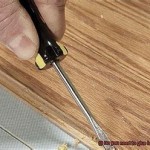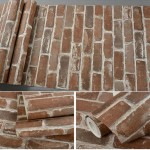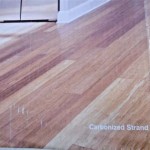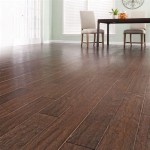Is Cork Flooring Pet Friendly In Florida, USA 2024?
Cork flooring has garnered attention as a potentially pet-friendly flooring option, particularly in regions like Florida, where specific environmental factors can impact flooring performance. Evaluating cork's suitability requires a comprehensive examination of its characteristics, considering both advantages and disadvantages in the context of pet ownership and the Floridian climate.
Florida's climate presents unique challenges for flooring materials. High humidity levels, seasonal temperature fluctuations, and the potential for flooding all influence the long-term durability and maintenance requirements of any flooring choice. These factors must be carefully considered when assessing the pet-friendliness of cork flooring.
Pet ownership adds another layer of complexity. Pets introduce factors like scratching, accidents (urine or vomit), shedding, and increased foot traffic. A pet-friendly floor should resist damage, be easy to clean, and not harbor allergens or odors. Cork's ability to meet these demands will determine its overall suitability for homes with pets in Florida.
Resilience and Scratch Resistance
One of the primary concerns for pet owners is the scratch resistance of their flooring. Cork, by its nature, possesses a degree of resilience due to its cellular structure. The millions of air-filled cells within cork provide a cushioning effect, which helps to absorb impacts and minimize the appearance of scratches. However, it is crucial to understand that cork is not scratch-proof.
The level of scratch resistance in cork flooring varies depending on several factors, including the density of the cork, the thickness of the wear layer (if applicable), and the type of finish applied. Higher-density cork tends to be more resistant to scratches. Similarly, cork flooring with a thicker wear layer, typically polyurethane or ceramic-reinforced finishes, will offer better protection against pet nail scratches.
Larger breeds and pets with sharp claws can potentially scratch cork flooring, especially if they are prone to digging or running indoors. Regular nail trimming is essential to minimize the risk of damage. Additionally, strategically placed rugs or mats in high-traffic areas, such as near doorways or feeding stations, can provide an extra layer of protection.
It's important to choose cork flooring specifically designed for high-traffic areas when considering it for a home with pets. Floating cork floors with a durable wear layer are often recommended. Some manufacturers offer cork flooring with enhanced scratch-resistant finishes marketed as pet-friendly options. Researching and selecting the right type of cork is crucial for long-term satisfaction.
While cork possesses inherent resilience, it’s not as inherently scratch-resistant as materials like ceramic tile or hardwood with a high-performance finish. Therefore, preventative measures such as nail trimming and the use of rugs are necessary to maintain the flooring's appearance.
Moisture Resistance and Cleanability
Florida’s humid climate and the potential for pet accidents necessitate flooring with good moisture resistance. Cork is naturally water-resistant due to the presence of suberin, a waxy substance found in its cell walls. This natural resistance helps prevent water from penetrating the material, reducing the risk of swelling, warping, or mold growth.
However, cork is not entirely waterproof. Prolonged exposure to standing water can still damage the flooring. In Florida, where humidity levels are consistently high, it's important to ensure proper ventilation and address any spills or pet accidents promptly. Allowing moisture to linger can lead to staining or, in severe cases, damage to the subfloor beneath the cork.
The finish applied to cork flooring also plays a crucial role in its moisture resistance. Polyurethane finishes, for example, create a protective barrier that helps to repel water. Regularly reapplying the finish according to the manufacturer's recommendations is necessary to maintain its effectiveness. Oil-based finishes can also offer water resistance, but they may require more frequent maintenance.
Cleaning cork flooring after pet accidents requires immediate attention. Urine, in particular, can be problematic due to its ammonia content. Promptly blotting up the spill with a clean cloth and then cleaning the affected area with a pH-neutral cleanser is essential. Avoid using harsh chemicals or abrasive cleaners, as these can damage the finish.
For routine cleaning, sweeping or vacuuming cork flooring is recommended to remove dirt and debris. A damp mop can be used for occasional cleaning, but it's crucial to avoid oversaturating the floor with water. Using a microfiber mop and a small amount of water is generally sufficient. Some manufacturers offer specialized cork flooring cleaners that are designed to be gentle and effective.
While cork offers a degree of moisture resistance, it's not impervious to water damage. Therefore, pet owners in Florida must take precautions to prevent prolonged exposure to moisture and maintain the finish to ensure the longevity of the flooring.
Odor Absorption and Allergen Reduction
Pet odors and allergens are significant concerns for many homeowners. Cork flooring possesses properties that can help to mitigate these issues. Cork is naturally antimicrobial, meaning it inhibits the growth of bacteria, mold, and mildew. This characteristic can help reduce the presence of odor-causing microorganisms.
The dense structure of cork also prevents it from harboring dust mites, pet dander, and other allergens. Unlike carpets, which can trap allergens deep within their fibers, cork flooring provides a smooth, non-porous surface that is easy to clean and disinfect. Regular cleaning can effectively remove allergens and minimize their impact on indoor air quality.
However, it's important to note that cork flooring is not completely odor-proof. Strong pet odors, such as urine, can potentially penetrate the finish and be absorbed by the cork itself, especially if spills are not cleaned up promptly. In such cases, professional cleaning or even replacement of the affected area may be necessary.
To minimize odor absorption, it's crucial to maintain the integrity of the finish and address pet accidents immediately. Using a pet-specific odor eliminator can also help to neutralize any lingering smells. In cases of persistent odors, consider consulting with a professional flooring contractor specializing in cork.
For homeowners with pet allergies, cork flooring can be a healthier alternative to carpeting. Its smooth surface and antimicrobial properties contribute to a cleaner indoor environment. However, proper maintenance and prompt cleanup of spills are essential to maximize these benefits.
While cork offers advantages in terms of odor control and allergen reduction compared to some other flooring options, it's not a foolproof solution. Regular cleaning and preventative measures are necessary to maintain a clean and healthy home environment.
Ultimately, the pet-friendliness of cork flooring in Florida depends on a variety of factors, including the specific type of cork chosen, the size and habits of the pets, and the level of maintenance provided. While cork offers several advantages, it’s essential to acknowledge its limitations and implement appropriate preventative measures to ensure its long-term performance and suitability for homes with pets in the challenging climate of Florida.

Ultimate Guide To Pet Friendly Floor Options Klc Floors More

Cork Flooring Pros Cons And Everything You Need To Know

What Is Cork Flooring Eco Friendly Durable Option
Flooring Options That Are Literally Pet And Kid Proof Newhomesource Com

Pet Friendly Flooring Guide The Best Floors For Paws Claws And Hooves

Transform Your Home With Core Flooring In Winter Park Fl

Ultimate Guide To Pet Friendly Floor Options Klc Floors More

Cork Flooring San Diego Ca Near Me Geneva

Cork Flooring A Modern Floor Choice Life Of An Architect

Paws And Floors The Top Flooring Choices For Pet Owners By Factory Fl Liquidators








